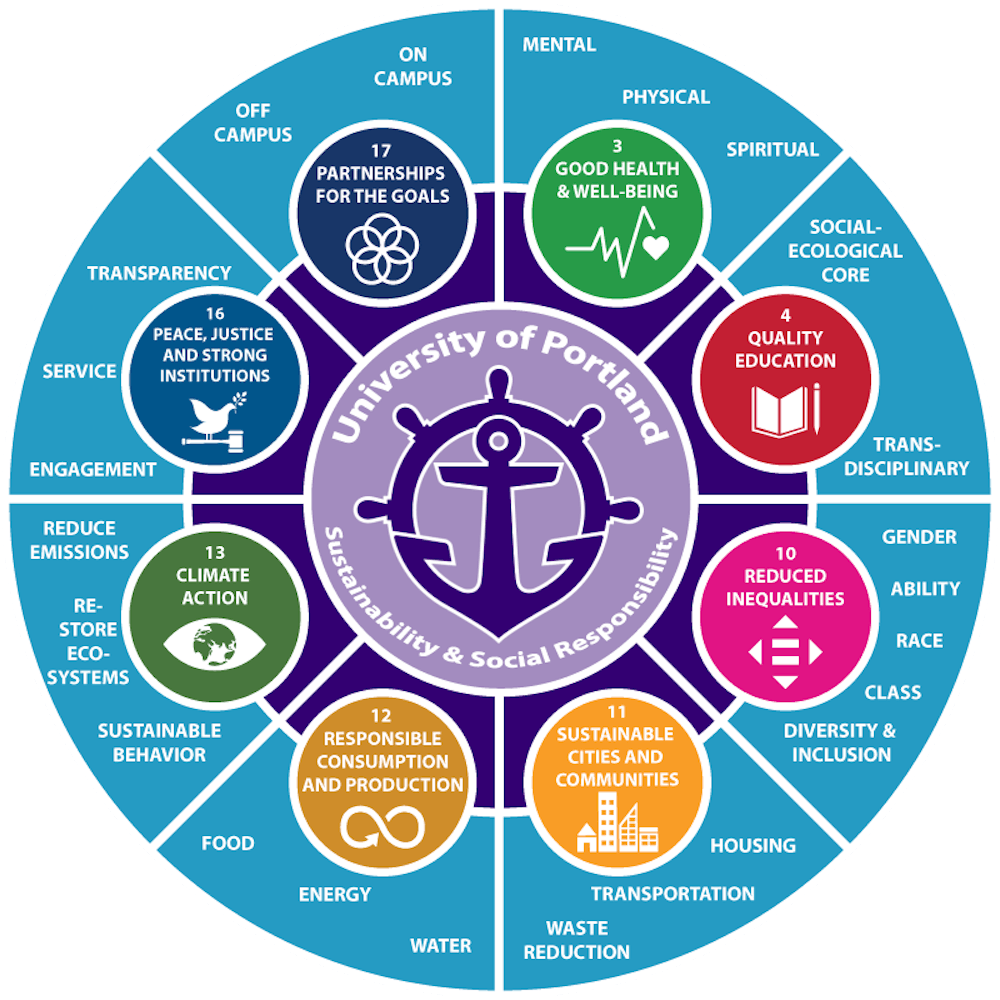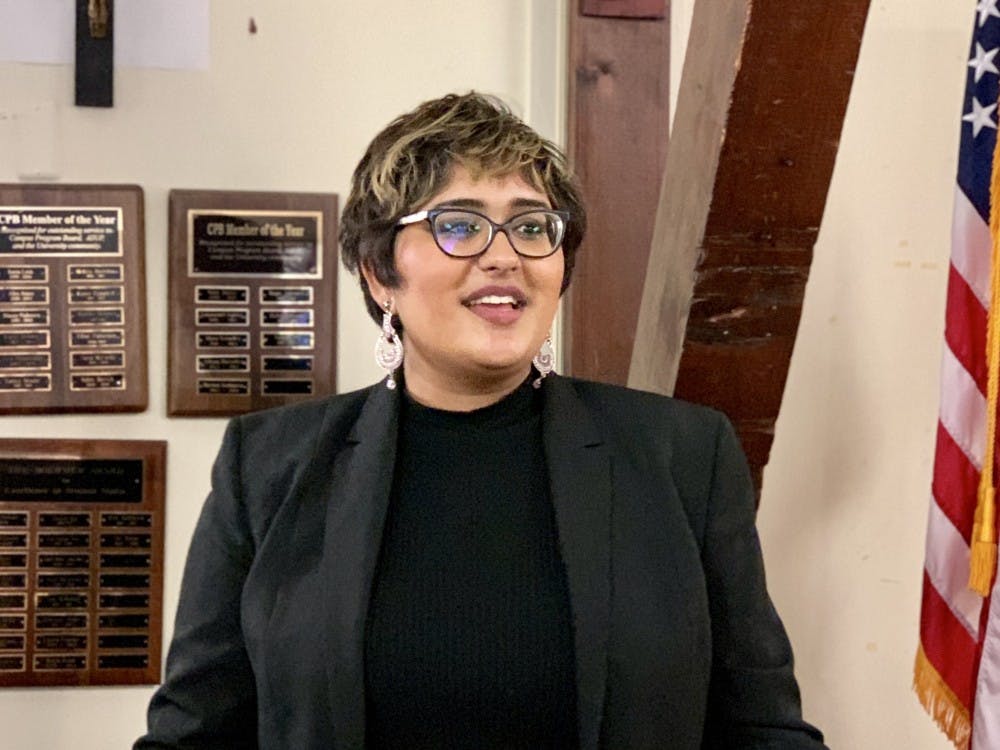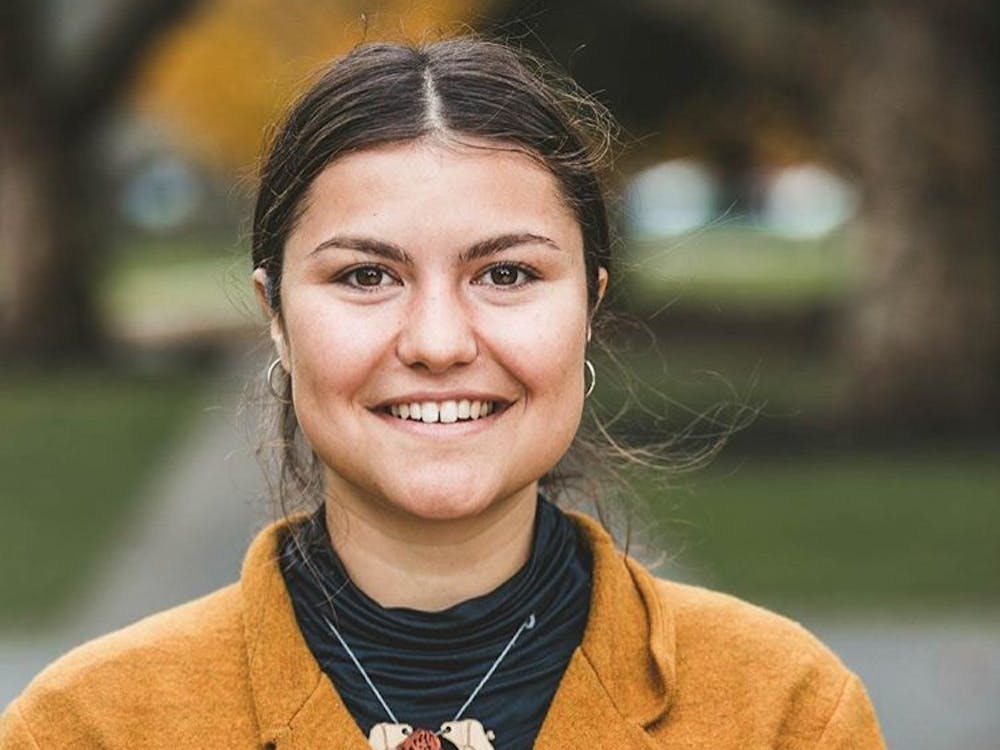The University of Portland has made progress in moving towards a more sustainable way of living on The Bluff. However, the concerted efforts of students, staff and faculty are not enough to make sustainability visible on campus. As the student representative on the Presidential Advisory Committee on Sustainability, I'm writing this opinion piece to put sustainability on UP’s radar and commemorate the hard work of those committed to integrating sustainability into campus culture.
This last semester, the student body's largest accomplishment was creating an official ASUP Committee on Sustainability and Social Responsibility (SSR). Most notably, the committee worked in collaboration with the Presidential Advisory Committee on Sustainability (PACOS) to propose becoming a member of the Association for the Advancement of Sustainability in Higher Education (AASHE), which would grant UP access to the association’s Sustainability Tracking, Assessment & Rating System (STARS). Through completing a STARS report, the university could measure its sustainability performance and establish a baseline that could be used to inform strategic planning.

Additionally, the SSR Committee defined sustainability at UP in terms of the United Nations’ Sustainable Development Goals as well as UP’s mission to pursue teaching and learning, faith and formation, and service and leadership. The committee intends for the definition to guide decision-making across campus.
Student Led Unity Garden and College Ecology Club (join them on Engage!) are two student groups on campus actively strengthening the culture of sustainability through organizing regular meetings to engage the UP community in gardening and discussions around environmental problems. In general, other clubs must be supported in connecting their interests to sustainability.
Equally as important as these new accomplishments and ongoing efforts is the work of Physical Plant and the Moreau Center.
Physical Plant has been enrolled in Energy Trust of Oregon’s Strategic Energy Management (SEM) program since October 2015, starting with only five buildings in the program and doubling that number to ten. In effect, Physical Plant tracks energy use in ten buildings on campus and looks for ways to increase energy efficiency and savings when it comes to maintenance and operation. This is the kind of thing that needs more visibility! In particular, so that UP can implement energy efficiency campaigns with, for example, the help of Sustainability and Innovation Ambassadors (SIAs) in the dorms, then measure the impact of the campaigns and find ways to incentivize more sustainable behavior.
The Moreau Center is offering an Environmental Justice Immersion for the first time next spring that will take participants into the Columbia River Gorge to learn about the intersection of environmental justice, racial justice and indigenous rights. The immersion will introduce participants to organizations and local leaders that represent frontline communities, which are already experiencing the consequences of climate change.
With respect to the administration, three wholly new positions related to sustainability were created and filled in the last year, including associate vice president of Land Use and Planning, associate vice president of Construction and Facilities, and Environmental Health & Safety officer. Moreover, the staff members in each of these positions are part of Physical Plant’s SEM team, working to improve energy efficiency at the university.
The administration has also been working on revitalizing the core curriculum this semester, which only happens every few years. When I attended a core revitalization forum in September, I saw staff and faculty take advantage of this window of opportunity to advocate for integrating social-ecological values and trans-disciplinary learning into education at UP. This is something that needs more visibility, too, so that the administration can be held accountable for applying such feedback.
Although the core curriculum has yet to approach social and ecological problems as interconnected and inseparable, there are courses offered within various departments that succeed at applying sustainability to a wide range of disciplines. For example, the Pamplin School of Business offers a sustainability minor that is available to all students on campus. Additionally, professors are making a valiant effort to add new courses to the curriculum such as ENV 314 Resilience and Policy, ECN 391 Climate Change Economics, THE 391 Ecological Spirituality, THE 491 Environmental Justice in a Global Context, and CST 491 Ecofeminism amongst others. Still, UP must offer more courses that teach the practical application of sustainability.
The social-ecological problems that we face today will persist long into the future and influence each and every single student’s career path in one way or another. Not to mention, every single student’s career path will in turn influence the relationship between humanity and the Earth. Realizing this, peer and aspirant schools that UP looks up to, including Notre Dame and Santa Clara University, already have fully staffed sustainability offices working to integrate sustainability into the curriculum, campus engagement, research opportunities, food & dining, investments & finance, facilities management, residence life and many other areas of campus.
Here at UP, we are making progress and we can do better.
Hence, in considering the economic, social and environmental consequences of our actions, the University of Portland must take seriously its leadership and commitment to the practical and timely application of sustainability on campus. Moreover, the University of Portland needs to acknowledge its role in contributing to sustainability efforts in the City of Portland and the State of Oregon.
With these points in mind, the SSR Committee developed a Call to Action and petition that asks the University to actively and transparently commit to the following seven objectives:
1. Integrating sustainable practices into the daily administration and operation of the university as well as strategic planning and capital expenditures.
2. Integrating sustainability into the core curriculum and academic life to support scholarship that advances the community’s understanding and practice of sustainability.
3. Using energy and natural resources evermore efficiently to decrease the university’s ecological footprint.
4. Encouraging the university community to strengthen our campus culture of sustainability by identifying opportunities, formulating strategies, and implementing initiatives.
5. Supporting the efforts of student organizations and campus outreach programs to address issues of environmental justice with special attention to diversity, equity, and inclusion.
6. Educating the university community on the importance of trans-disciplinary collaboration as well as individual and institutional action for creating systemic change.
7. Adopting sustainable and socially responsible procurement policies throughout the university.
To realize these objectives as soon as possible, here are a few things that UP is well positioned to do:
• Hire a sustainability manager, who can coordinate the efforts of folks on campus.
o Sustainability Manager Position Proposal by members of the UP community.
• Commit to achieving climate neutrality in accordance with a climate action plan.
o Climate Action Plan by members of the UP community.
• Create a webpage for sustainability on the main UP website.
• Complete an AASHE STARS report.
Given the minimal awareness of sustainability on campus, it is fair to conclude that the efforts of students, staff and faculty are isolated and therefore, severely impeded in gaining widespread support and having a measurable impact. In order to coordinate the many sustainability initiatives on campus and advance them in a meaningful way, the University of Portland must encourage collaborative institutional leadership aimed at bringing all initiatives together and carrying them forward into the future.
Ruby Beauchamp is a senior organizational communication and Spanish major, and a member of the Presidential Advisory Committee on Sustainability and the ASUP Committee on Sustainability and Social Responsibility. She can be reached at beauchar20@up.edu.








